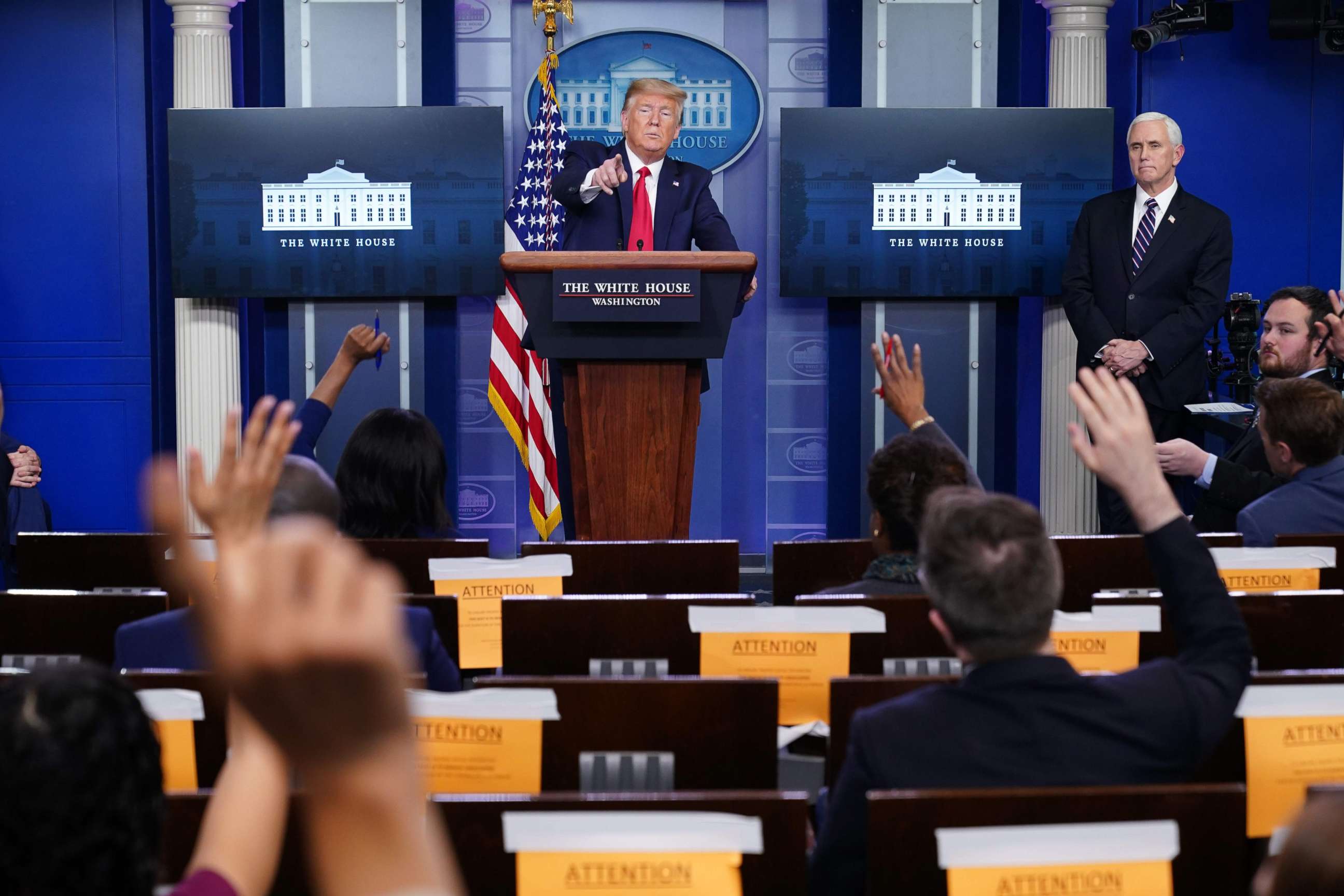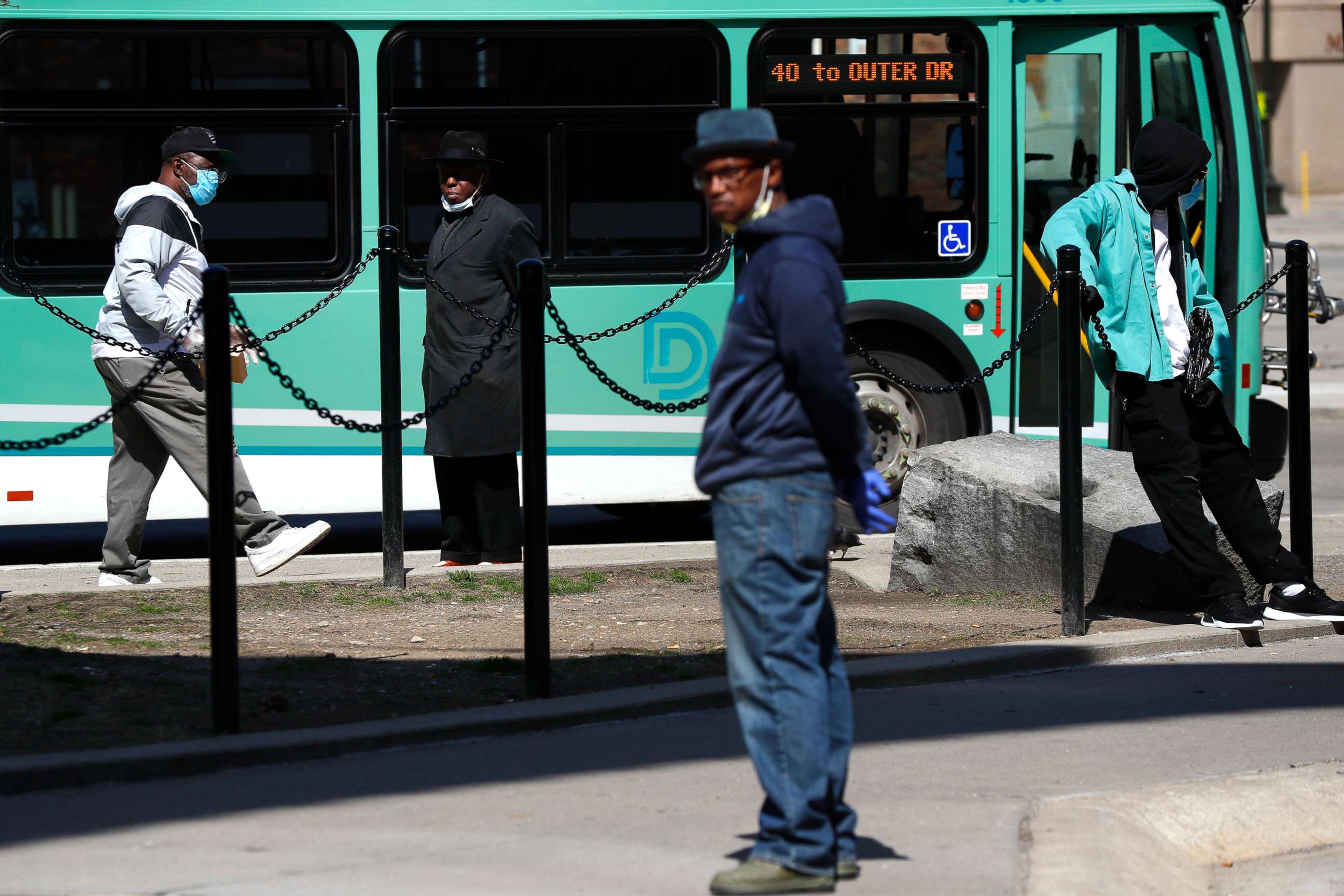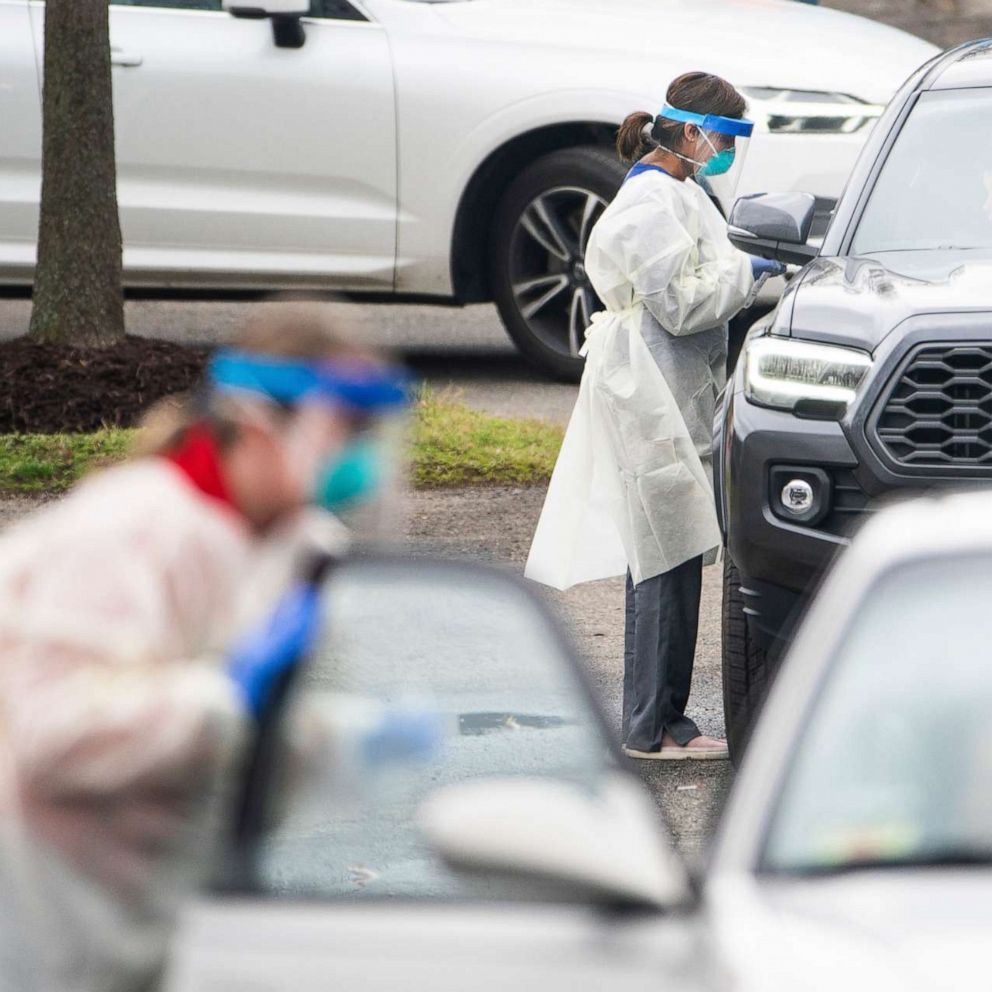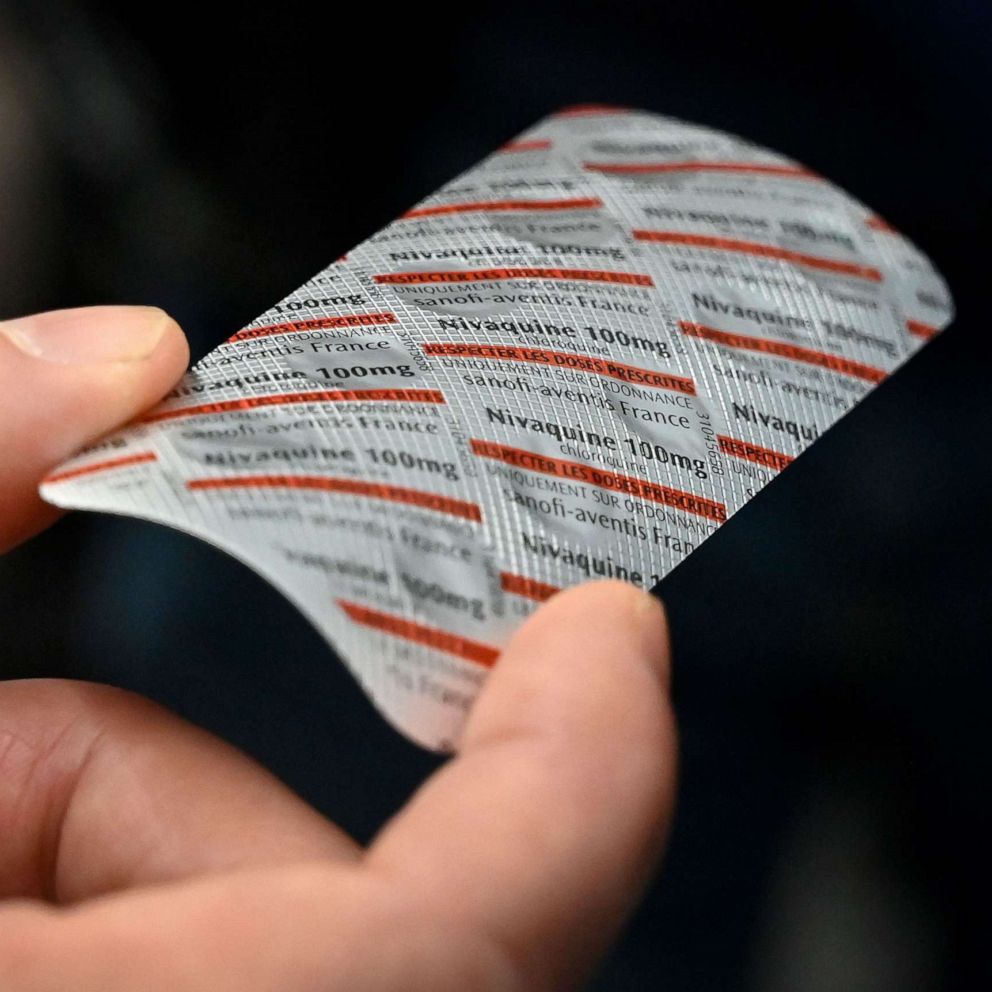Black Americans 'epicenter' of coronavirus crisis made worse by lack of insurance
Black Americans face historic barriers accessing health care.
New data has revealed that the novel coronavirus kills black Americans at a disproportionately high rate. At a White House briefing Tuesday, President Donald Trump called the disparity "terrible" and a "tremendous challenge."
The insight comes as some states have released mortality data based on race and ethnicity. On average, black Americans are less likely than other groups to have health insurance, and because of other historic barriers accessing health care, may be more likely to have an underlying chronic health conditions that could put them at a higher risk for COVID-19.
"It has been disproportional. They are getting hit very, very hard," President Trump said at Tuesday’s briefing, referring specifically to the disproportionate sickness and deaths from coronavirus in black communities across the country.

In Chicago, black Americans comprised 71% of COVID-19 deaths despite representing only 30% of the population.
Black people account for 71% of the deaths in Milwaukee County, Wisconsin, but are only 26% of the city’s population and account for 70.5% of the deaths in Louisiana despite comprising only 32% of the population.
The Centers for Disease Control and Prevention, meanwhile, issued a report today which found that for hospitalizations, "black populations might be disproportionately affected."
Gezzer Ortega, MD, MPH, instructor at the Center for Surgery and Public Health, Brigham and Women’s Hospital explained that this disparity has historically always existed in the health care system for minorities and vulnerable populations.
Oliver T. Brooks, MD, president of the National Medical Association said in a press release, "we are underinsured or uninsured during a health crisis … the African American population is at the epicenter of this current health crisis."
"We have a difficult problem of exacerbation of a health disparity. We have known literally forever that diseases like diabetes, hypertension, obesity and asthma are disproportionately afflicting the minority populations, particularly the African American," NIAID director Dr. Anthony Fauci said at the same White House briefing, adding that those are the same conditions that "lead to a bad outcome with the coronavirus."
Now, doctors and advocates say that one of the best ways to fix those health disparities is to publish race-ethnicity data nationally to reveal the gravity of the problem, then provide more accessible COVID-19 testing and free treatment for Americans who lack insurance, or do not have adequate insurance.
"Everywhere we look, the coronavirus is devastating our communities," said Derrick Johnson, president and CEO of the NAACP in a statement to the press. "We urgently call on our elected leaders to ensure we are tested, treated and protected to prevent further spread of this horrible disease and more loss of life in our communities."
On March 18, President Trump signed into law a stimulus package, the Families First Coronavirus Response Act, which provides funding for free COVID-19 testing. However, experts say its impact is not being felt in communities of color. Testing is still reserved for patients showing severe symptoms -- unless those tests are privately purchased. A cough or sneeze takes someone out of work for 14 days unless they have access to a test. Staying home for some may mean getting fired and losing health insurance coverage.
This pandemic has revealed obvious racial and socioeconomic gaps. The barriers are systemic, it is harder to avoid exposure, "like taking public transportation to get to jobs as essential workers because they can't afford to not work, living in food deserts and having to travel to get groceries, and other issues that have been reported on," said Dr. Fauci.
The stimulus package doesn’t cover these problems.

"There are demonstrable socioeconomic outcome disparities across so many diseases, we won’t be surprised to find the same with COVID-19," says Edward E. Cornwell III, MD, professor of Surgery at Howard University Hospital and director of the Howard-Harvard Health Sciences Outcomes Research Center.
For now, the stimulus package doesn’t cover all the related expenses of hospitalization for coronavirus. So for those needing hospitalizations, underinsured Americans are left vulnerable to sky-high medical bills.
Insurance status is a "strong predictor" of how likely it is that a person will get sick and die, according to Cornwell.
Stay-at-home orders and closing nonessential businesses have led to record-breaking unemployment rates. By the end of March, the Department of Labor reported an estimated 6,648,000 claims. For nearly half of Americans, unemployment also means the loss of their health insurance.
For now, "the best way to prevent this pandemic from disproportionately affecting people of color is to remove financial, language access, and other long-standing barriers to testing and treatment," said Connor Maxwell, senior policy analyst, Race and Ethnicity, Center for American Progress.
Even as doctors and advocates urge federal and state governments to make COVID-19 testing and treatment easily available and free -- particularly in communities of color -- they argue that these short-term fixes won’t be enough to fix deep disparities in the health care system.
"In the long-term, lawmakers must address the underlying system of inequality that put people of color at such great risk in the first place, including exposure to toxic pollution and environmental hazards, housing segregation, and outright discrimination," said Maxwell.
"The underlying factors that put communities of color at greater risk during the coronavirus pandemic will not disappear on their own," Maxwell said. "When the nation emerges from this crisis, lawmakers must turn towards ensuring a robust and equitable recovery that centers on those who have long endured inequalities across American economic, social and civic systems."
What to know about coronavirus:
- How it started and how to protect yourself: Coronavirus explained
- What to do if you have symptoms: Coronavirus symptoms
- Tracking the spread in the U.S. and worldwide: Coronavirus map
Delaram J. Taghipour, M.D., M.P.H, M.B.A., is a preventive medicine resident at Johns Hopkins Bloomberg School of Public Health and is a contributor to the ABC News' Medical Unit.






